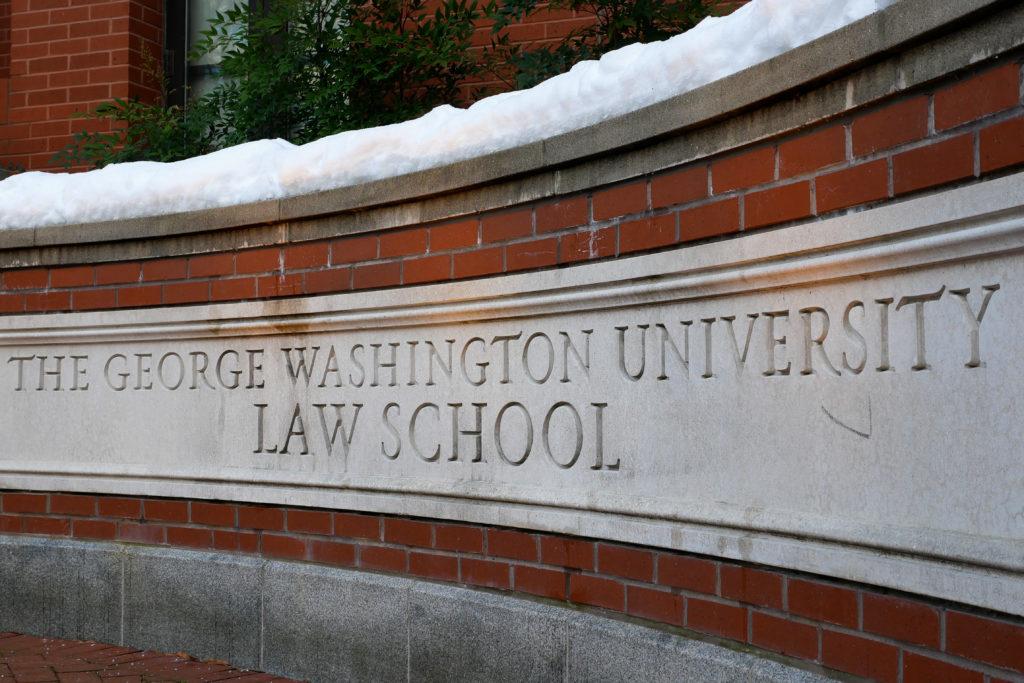Dozens of law school students may not be able to work in government offices this spring because of the ongoing partial government shutdown.
Between 50 and 60 law students enrolled in the school’s externship program – a training program that gives students practical experience in a government workplace – cannot begin their programs while the government is closed, law school officials said in an article last week. Students receiving academic credit for the externships are adding additional courses to their schedules to prepare for the possibility that the shutdown may span months.
Jessica Tillipman, the assistant dean for field placement at the law school, said in the article that about half of the school’s spring externs are affected by the shutdown.
“We are committed to working with any student impacted by the government shutdown,” Tillipman said. “The law school has provided extensive academic counseling to impacted students about how to manage their schedules this semester.”
She added that if students in the externship program cannot begin working by Feb. 1, students will stay in a backup course and will not complete a field placement this semester.
Law students said they are worried about missing out on work experience and are now working to secure new plans to compensate for the academic credit they planned on receiving from their work.
Annie Martin, a second-year law student who has an externship with the Department of Justice’s Child Exploitation and Obscenity Section, said she may have to work more hours per week, move her externship end date or rearrange her courses to work fewer hours if the government opens later in the semester.
“There’s not much I can do,” Martin said. “I picked up an extra class in case I’m unable to get the two credits I was counting on. I’m looking into being a research assistant for a professor to improve my legal research skills so I feel prepared for my summer job. Other than that, it’s just a waiting game.”
She added that her externship would enhance the work she completed before enrolling in law school when she worked with Child Protective Services.
“Being denied the opportunity to get back to that work because of funding for an unnecessary, ineffective, racist border wall doesn’t just impact me academically, it impacts me emotionally,” Martin said.
Andrew Current, a second-year law student who has an externship with the Department of Justice, said he has registered for an additional class and has met with program officials to discuss his options if he cannot work. He added that he will have to either drop out of the externship or complete it without academic credit if the shutdown persists until Feb. 1.
“My paperwork, background check and security clearance are all pending,” he said. “So, even when things do reopen, I’ll likely be delayed even longer while the machine gets back up and running.”
Ashley Young, a second-year law student who has an externship with the Department of Justice, said in an email that she added another class to her schedule in case the government does not open by Friday, which is her externship start date. She said she added the class because she needs the academic credits to remain a full-time law student.
Young said she will complete the externship during the summer or fall if she cannot this semester but she planned to focus on schoolwork next academic year and wanted to avoid the added stress of working.
“I had a laid-out plan for how I wanted law school to go so it’s altered that a little bit, but I don’t think it’ll be necessarily too damaging for me,” Young said. “It’s just a hurdle that I have to get over and deal with.”
Min Ki Kwon, a second-year law student who has an externship with the Environmental Protection Agency, said he is “fortunate” because he is not receiving academic credit for his externship. He said his greatest concern is that he might miss the opportunity and experience of working on “meaningful legal projects.”
“If I ever miss them, I am not so sure how to make up for those,” Kwon said. “It’s not the type of knowledge that books or lectures can teach you.”
Matthew Lewis, a third-year law student externing without academic credit for a court in the federal government, said he is currently working remotely and will be unable to continue if the shutdown continues for more than another month.
Students working in the federal judiciary will be able to continue working until the courts’ funding runs out, law school officials said in an article last week.
“Regardless of whether the shutdown ends tomorrow or in 2020, there will be a lot of work to catch up on when it ends, so I plan on trying to be as productive as I can during the shutdown in order to lessen the load when the court resumes standard functions,” Lewis said.





